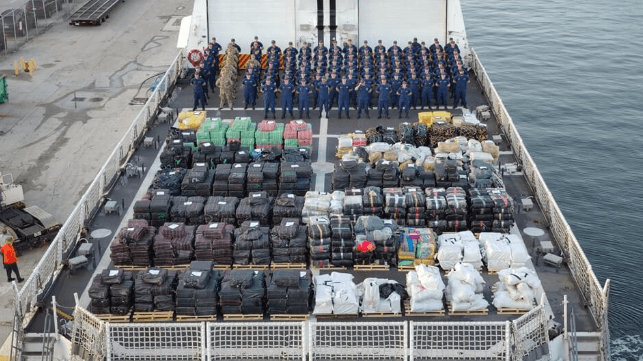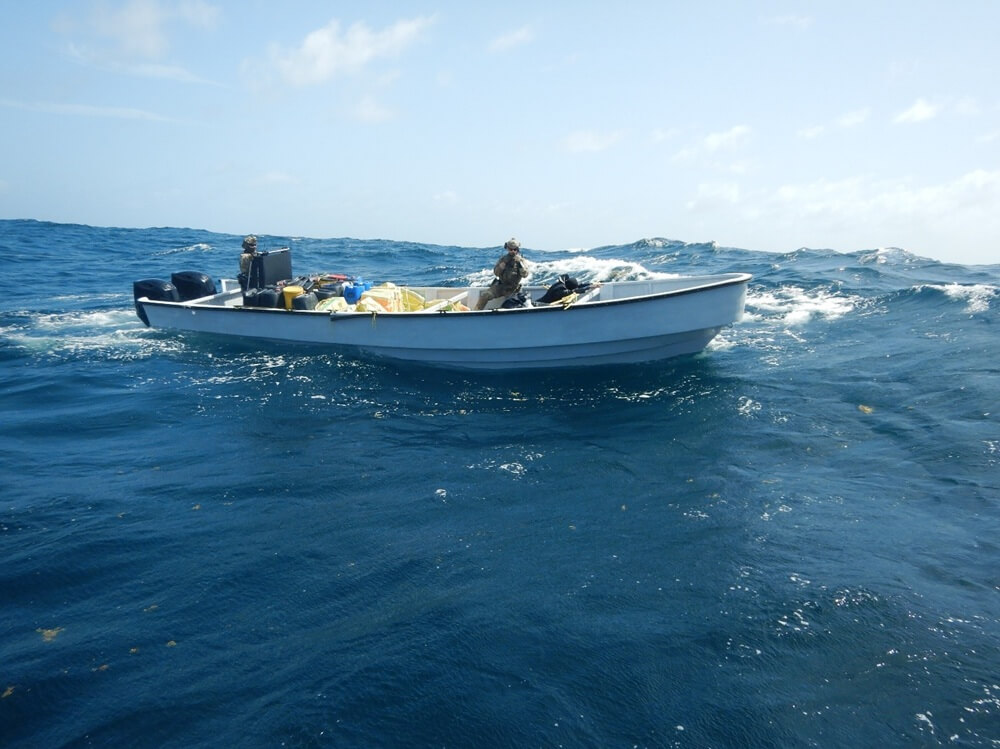U.S. Coast Guard Sets Record With 34-Tonne Cocaine Offload

The U.S. Coast Guard cutter Hamilton has offloaded a record-setting 34 tonnes of cocaine at the pier in Port Everglades, a quantity of the drug rarely seen in one place. It is the service's largest single cocaine offload on record, and the Coast Guard estimated its value at a (much-reduced) price of just $470 million. An overabundance of South American cocaine exports have pushed down prices in export markets, increasing volume and reducing its value at the same time.
USCGC Hamilton offloaded cocaine collected in 19 separate interdictions near Aruba, Haiti, Venezuela, Curacao, Jamaica, the Dominican Republic, Bonaire, and a variety of high-seas locations in the Eastern Pacific, from Ecuador to Mexico. Six different Coast Guard, U.S. Navy and Royal Netherlands Navy vessels participated in the seizures, but Hamilton played the largest role, conducting 11 interdictions and seizing a record 47,000 pounds of cocaine.
Cocaine bust off Bonaire, facilitated by destroyer USS Cole (USCG)
“Team Hamilton with our partners, worked incredibly hard the last several months to safeguard the American public from the dangers of illicit narcotics entering the United States,” said Capt. John B. McWhite, commanding officer of Hamilton. “The commitment and sacrifice of our deployed service members and their families, who forego time together for the protection of our Nation, are to be celebrated.”
A large share of the cocaine traffic through the Caribbean is destined for Europe, not the United States. European customers account for about one fifth of global cocaine demand, and have historically paid a premium for the drug. The Coast Guard priced out the shipment's U.S. wholesale value at about $14,000 per kilo, a fraction of the 2024 EU average of about $35,000 per kilo; EU street and wholesale prices have fallen since the first quarter of 2025, according to multiple European media reports, driven down by an abundant supply and a price war between cartels.

